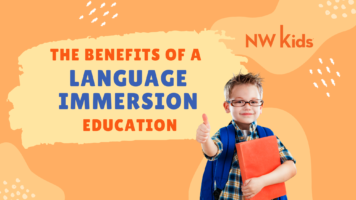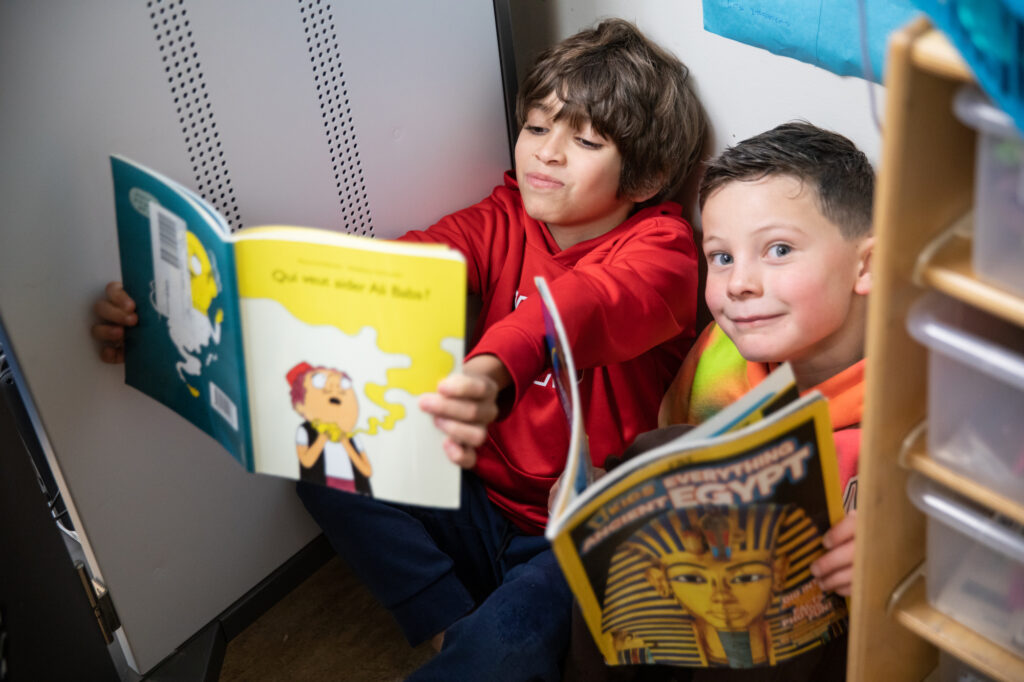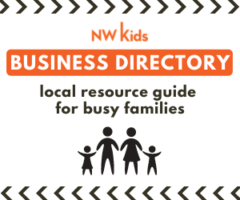The Benefits of a Language Immersion Education


We chatted with Aurore Molerus, the Lower School Division Head at French International School of Oregon, about some of the considerations in choosing a language immersion education for your child.
How early can a child begin immersion education?
As early as possible! Young children learn differently from adults, which makes them prodigious language learners*. From infancy to about 12 years old, there is a cognitive window for children where the brain has a functional plasticity**. After that, language is stored into this hard to reach compartment.
At FIS, students can begin in our Maternelle* program as early as 2 1⁄2 years old in Toute Petite Section (early preschool specifically for 2
1⁄2 year-olds). All of our teachers are native speakers from French- speaking countries and are experts in immersion learning, passionate about supporting little ones as they embark on this journey.
What are the lifelong benefits of a bilingual education?
In an immersion program, students don’t
just learn another language, they learn
IN another language. Studies show this enhances focus, critical thinking, problem solving, open-mindedness, interpersonal skills, and so much more. It also enhances empathy. Learning in another language means connecting to the rest of the world
in all its diversity. It becomes a part of our thinking process because we practice looking at things from different perspectives.
At FIS, we also nurture those key skills through an IB framework (International Baccalaureate), an inquiry based program that cultivates global citizens “through academic rigor and emphasis on students’ personal development.” All this constitutes a solid foundation for being a balanced learner throughout your whole life.
Can math and science be taught adequately in a second language?
Without a doubt! Again, immersion means learning IN another language. It is not a language program. Expectations for all subjects are set by the school’s curriculum and program. FIS, for example, is part of a network of over 500 accredited schools around the world that follow the French national curriculum. Goals are set by the Education Nationale*. So students are expected to learn math and science at the same level as all those schools.
While all this learning is happening, students are developing the key skills mentioned earlier, like critical thinking and problem solving. And that is not the extent of it. In the end, learning math and science in another language is actually enhanced because it is taught in a second language.
How can parents and caregivers support a bilingual education if they do not speak a second language?
The key to supporting your child is to stay connected to their learning journey and that can happen in so many ways that do not require speaking a second language. Parents need to show their children that they’re excited and proud of this learning journey. It can also be beneficial to explain why you chose animmersion program.
At FIS, at the end of fifth grade, students travel to France for an exchange
program. Some families meet up with their children at the end of this exchange to then travel across Europe as a family to experience other cultures. Another way parents can support their child’s bilingual education is to reflect with them on their school life, their projects, and their day. These reflections can happen in any language. These are just a few suggestions and there are so many more!
Do you see your bilingual alumni succeed in more diverse careers than their single language peers?
While it’s difficult to say whether it
is the case or not, numerous studies
are conclusive: learning one or several languages promotes cognitive, social, and professional development.
We live at a time when information
is shared worldwide in seconds in all languages and where speaking another language means more opportunities in professional work. Therefore immersing inother languages, with its lifelong benefits, becomes strategic in our society and
can only influence our students’ choices and paths into their adult life. I can’t wait to hear from my students in 10, 15, 20 years from now and hear all about their adventures!
Founded in 1979, FIS offers French immersion for preschool-5th grade. Their middle school offers four immersion tracks (French, German, Mandarin Chinese and Spanish) and an English- focused track with beginning language. To learn more, visit fisoregon.org


